Adapting to a world of increasing interest costs …
Date
13 January 2023
Share

Adaptation was probably the theme for 2022, when most people and businesses experienced a period of rapid change as a result of a world entering a post-COVID environment combined with international events that have seen the costs of living and inflation skyrocket.
Adaptation was probably the theme for 2022, when most people and businesses experienced a period of rapid change as a result of a world entering a post-COVID environment combined with international events that have seen the costs of living and inflation skyrocket.
The finance world also experienced some significant change to interest rates with the rapid climb of the Official Cash Rate (OCR), which underpins and influences borrowing rates. 2022 saw the rate lift from 0.75% at the beginning of the year to 4.25% in November. To further illustrate how dramatic this shift has been, it is worth mentioning that the OCR stayed at 0.25% from March 2020 through to October 2021, when it lifted to 0.50%. This was an extraordinary period of low interest rates where both personal and business borrowers enjoyed a period of record low borrowing costs.
While the OCR doesn’t immediately affect asset finance rates as quickly as it does with shorter-term funding, it is still an influencer and serves as a prediction for future asset finance interest rate moves both up and down. There is generally a lag period in asset finance rates between any OCR movement and this lag will be dependent on how each finance company derives its funding, which we’ve commented on in a previous article, "Minimising rising interest costs and making good finance choices”
With the Reserve Bank trying to dampen inflation, there are some predictions that the OCR will peak at 5.5% in 2023, so this represents a lift of another 1.25% from the current rate. This means that while the pace of interest rate change is likely to be less than it was in 2022, it still represents an environment where the cost of borrowing is going to increase and that borrowers (both personal and business) need to be aware of, anticipate and budget for. We’ve also commented previously on "The extra cost of borrowing in real terms” in a previous article (full article linked here).
So, because borrowing rates on average shifted upwards 4% over the course of the 2022 year and with 2023 looking like it’ll be a gentler lift of 1.25%, we all have no choice but to accept and adapt to further increases in funding costs. While the interest costs for businesses are a useful deductible expense, there is no getting away from the impact on business cashflow that your increased repayments are going to have.
At Finance New Zealand, we actively monitor changes in interest rates across our network of funding partners and this means that we are uniquely positioned to assist you with finding competitive funding that suits your unique business needs. We have the expertise to help analyse your current funding structures to ensure they are best aligned to your business goals. If you have capital purchases programmed for 2023 to add new assets or replace existing ones, then (if it makes sense) it may be best to go ahead with these earlier in the year in order to lock in a lower interest rate ahead of any further increases. Whatever your business finance requirements, we can help position your business finances to make for a smooth and prosperous year ahead.
Similar Posts
12 January 2026
Asset & Equipment Finance LVRs
Purchasing new vehicles, machinery, or equipment often raises one key question: how much deposit is required? The answer depends on more than just the asset. It comes down to LVRs (Loan to Value Ratio's), structure, and lender, policy & appetite. This article explains how asset and equipment finance LVRs work in New Zealand, and why advice matters.

27 November 2025
The Bottom of the Cycle? What the OCR Cut Means for 2026
Shifting interest rates are reshaping the way businesses finance equipment, vehicles and growth. Understanding these changes can help you make smarter, better-timed funding decisions.


Page Links
Contact us
Finance New Zealand Limited L11 BDO Tower, 19-21 Como Street, Takapuna, Auckland 0622 PO Box 65164, Mairangi Bay 0754 T: (09) 222 0320E: info@financenz.co.nzMember of


Proud Sponsors of Auckland Rescue Helicopter Trust
Copyright Finance New Zealand Ltd 2026



